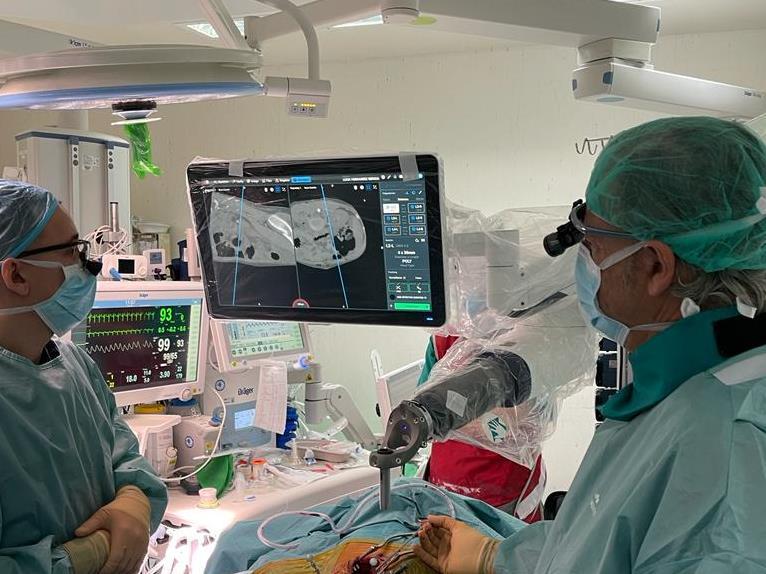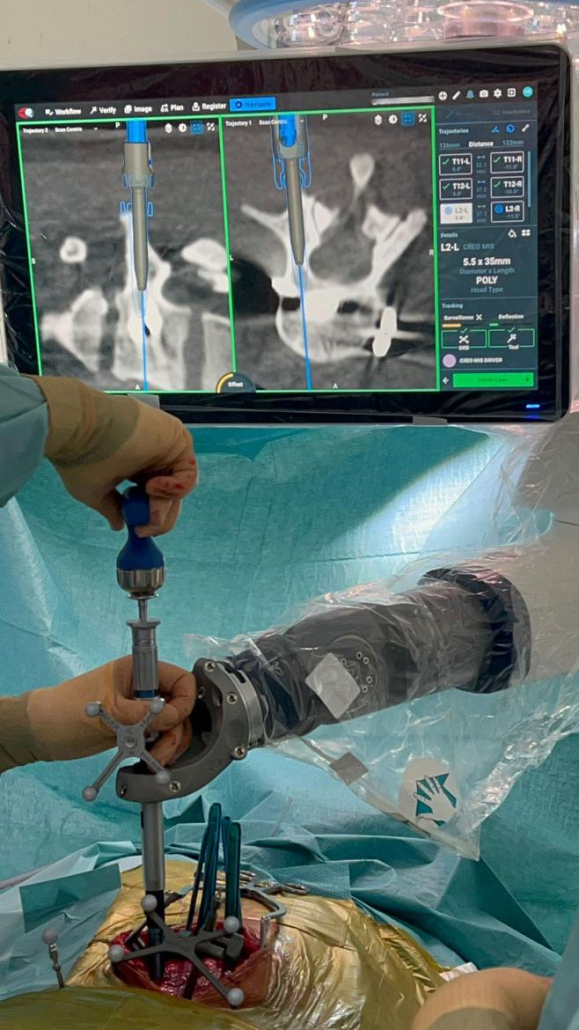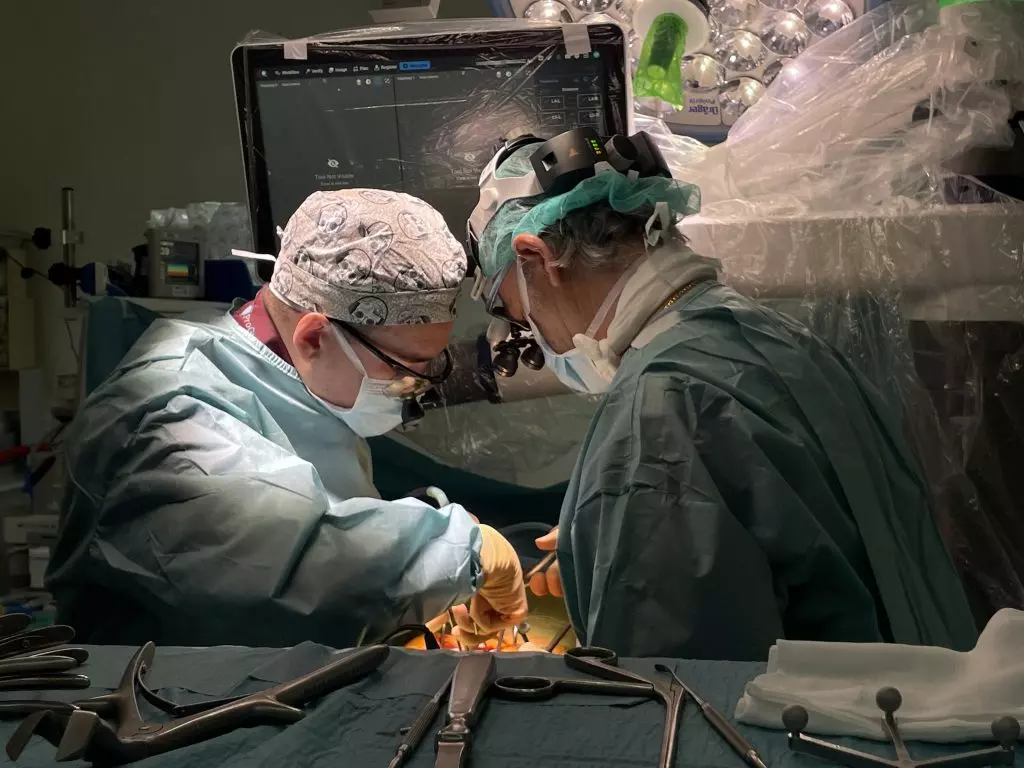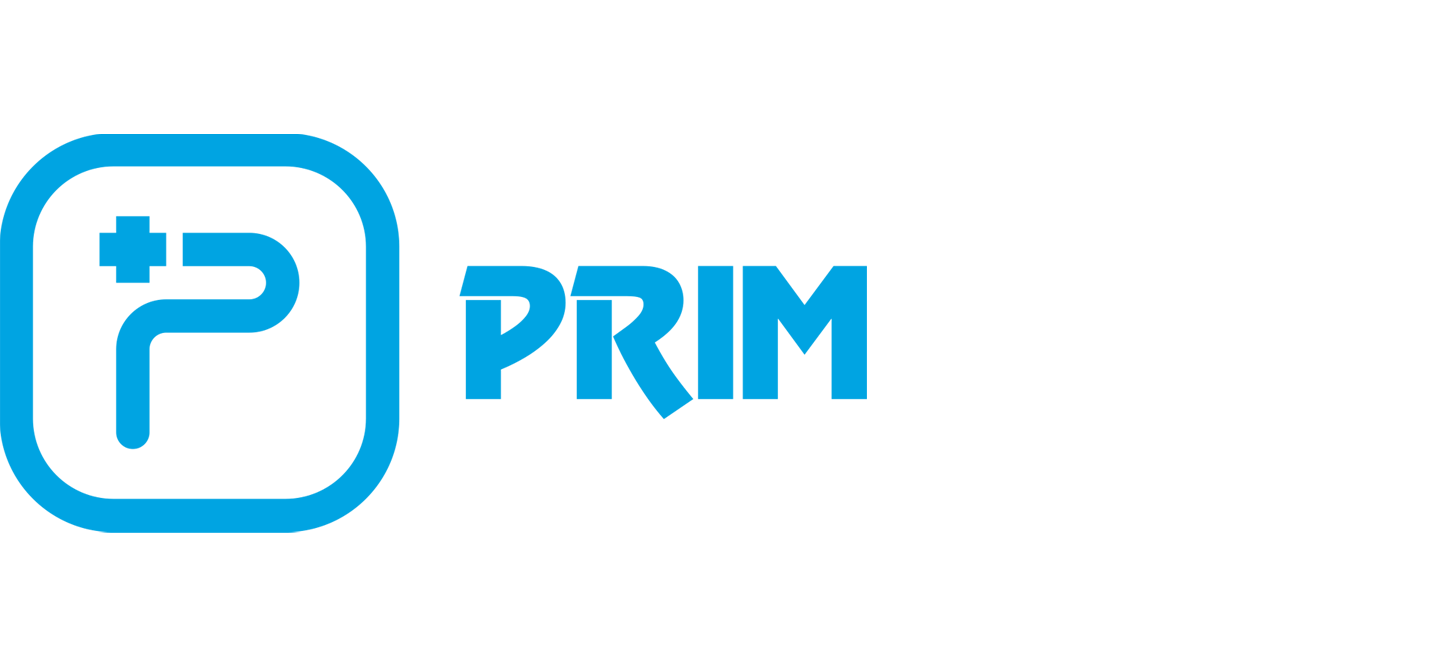Hospital La Paz Neurosurgery Unit being first one using Prim Excelsius GPS Robotic Arm

This new revelation makes the Neurosurgery Service at the Hospital La Paz in Madrid the first public or private hospital in the country to offer the state-of-the-art Excelsius GPS technology for back surgery. To date this equipment has been used to perform 37 operations and fit 220 screws in patients.
“This innovative technology allows us to accurately schedule operations, especially those involving implants. We are currently specialising in back surgery, both for adult and paediatric patients, fitting transpedicular screws and performing different types of back surgery. In the future it is expected that this software may even be used for craniotomies. We believe that this will be at the start of 2024”, explains Víctor Rodriguez, a member of the Neurosurgery Service at La Paz.

This innovative equipment will deliver improved results and offer a wide array of new benefits. Among these, the neurosurgeon highlighted the improved accuracy and safety for patients, a reduction in radiation exposure for both the patient and the surgery theatre staff, as well as a generally quicker surgery time, minimising the risk of infection and any possible associated complications. It also allows for a 50% reduction in the time spent on each screw, and an overall 10% reduction on surgery time.
This breakthrough allows the surgeon and machine to work simultaneously to fit transpedicular screws, make smaller incisions and reduce the likelihood of any postoperative infections while also offering a speedier recovery.
The system also decreases radiation exposure by almost four times in comparison to conventional radiology. Additionally, it helps to prevent any possible complications such as vascular lesions, which may cause spinal cord or peripheral nerves haemorrhaging, resulting in a possible motor or sensory loss.
Scientific evidence shows that this system offers significant benefits in terms of accuracy, as it can be exactly and repeatably programmed. This technology requires a preoperative evaluation that enables the specialist to carefully plan the surgery, they can then perform it with a margin of error of less than 0.5 mm, at a level of almost 100% accuracy, according to the professional studies which have been published on this technology.

“The system allows us to plan the surgery on a computer and combine this in the operating theatre with more patient images, placing the screws based on the images taken. This allows us to fit the screws where we like around the spinal cord and nerves which lead to the legs, which can be at risk if the screws are poorly positioned. We are also able to protect the great vessels which surround the spine”, commented the neurosurgeon from La Paz.
To find out more about the use of our robotic solution Excelsius GPS in back surgery and craniotomies, visit https://neurotrauma.prim.es/robotica/
This post is also available in: Spanish



